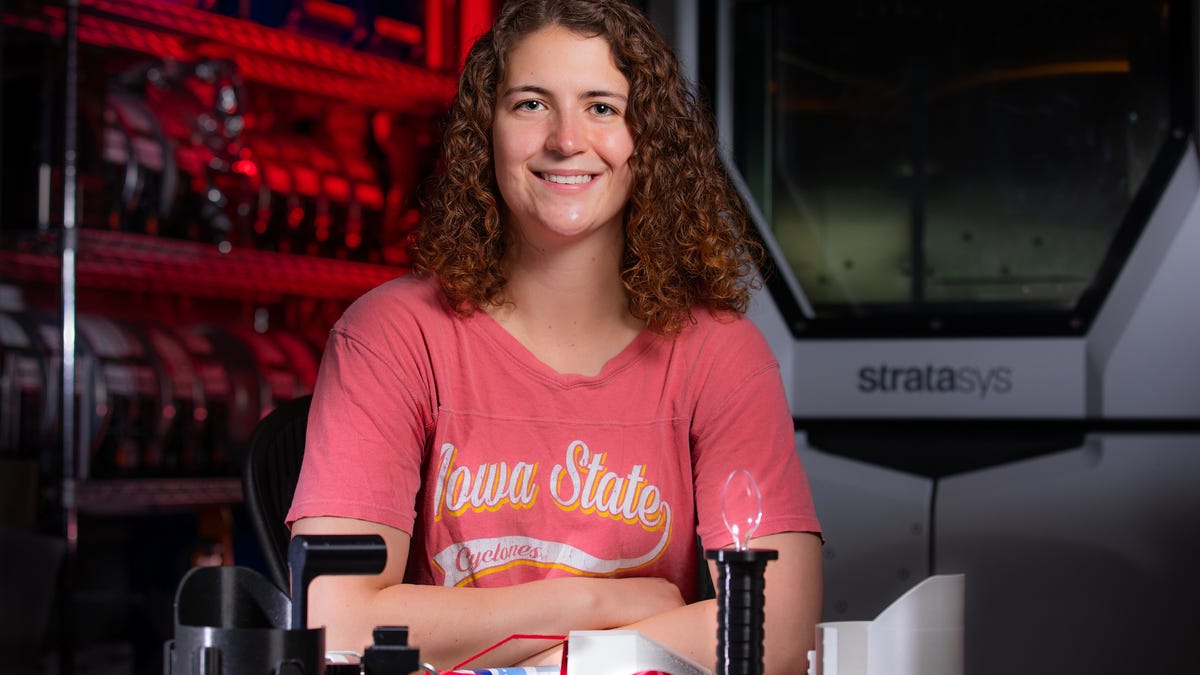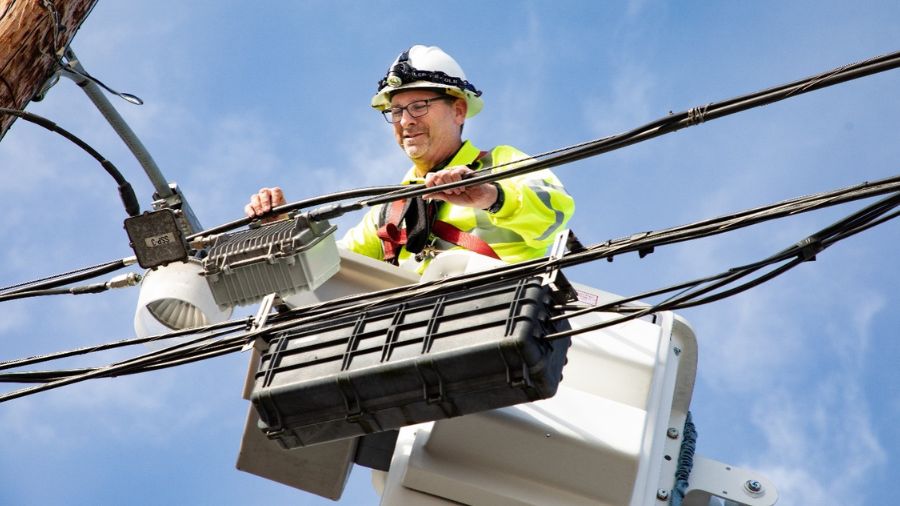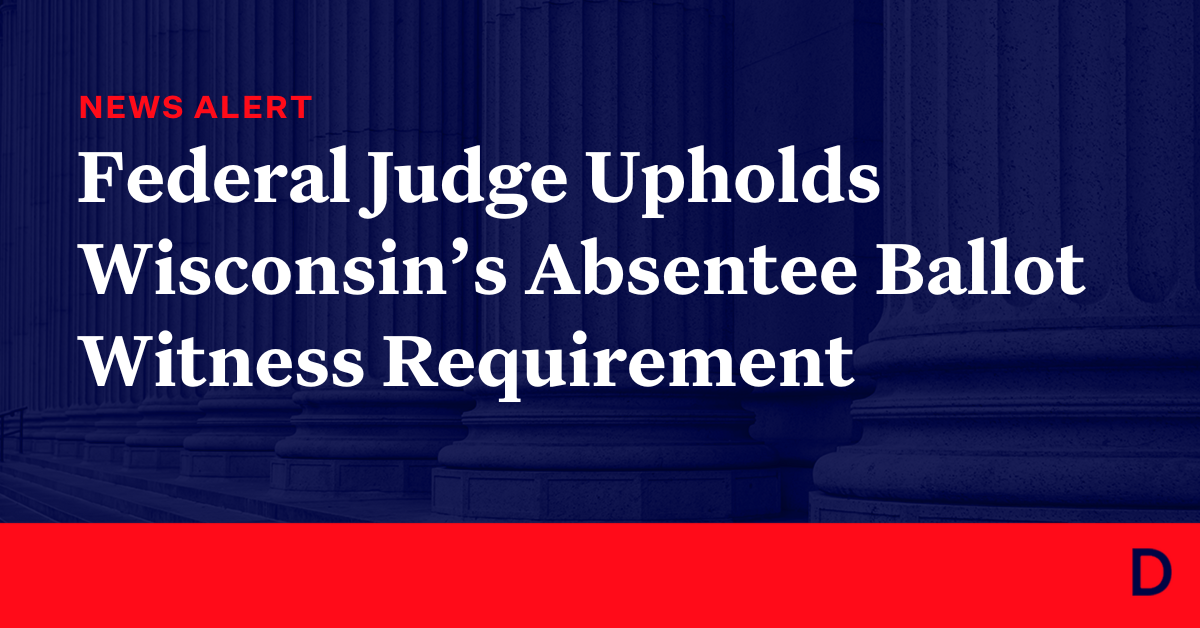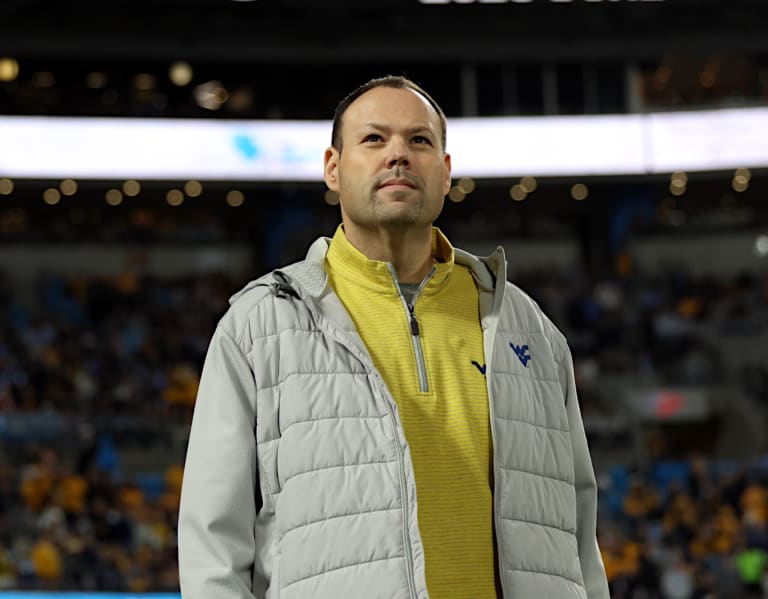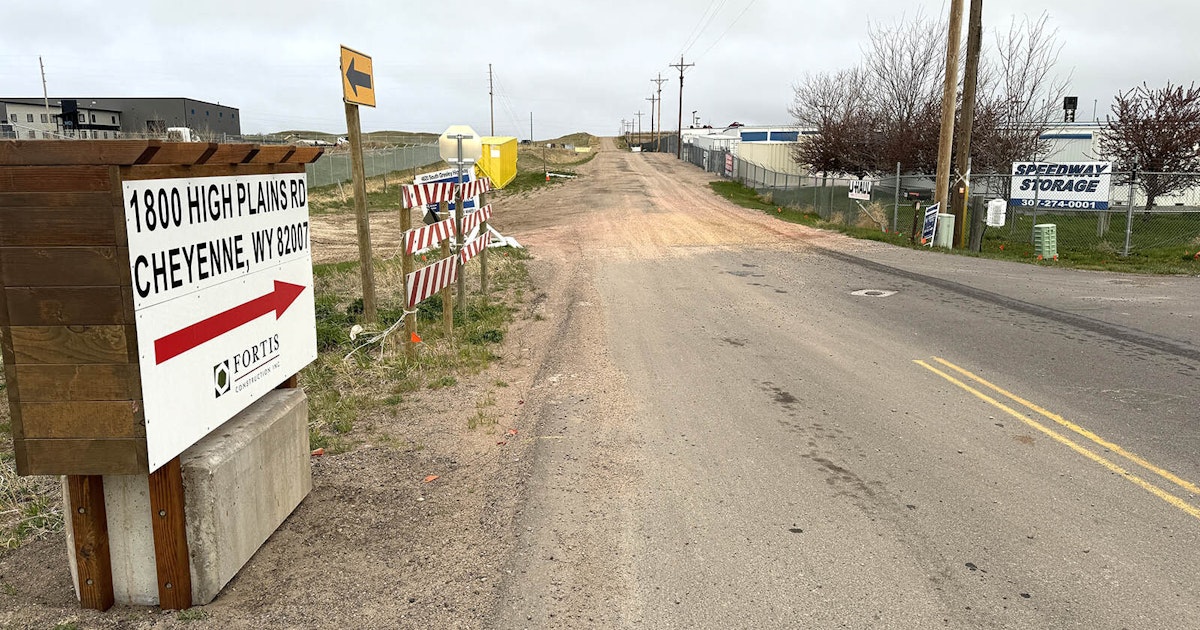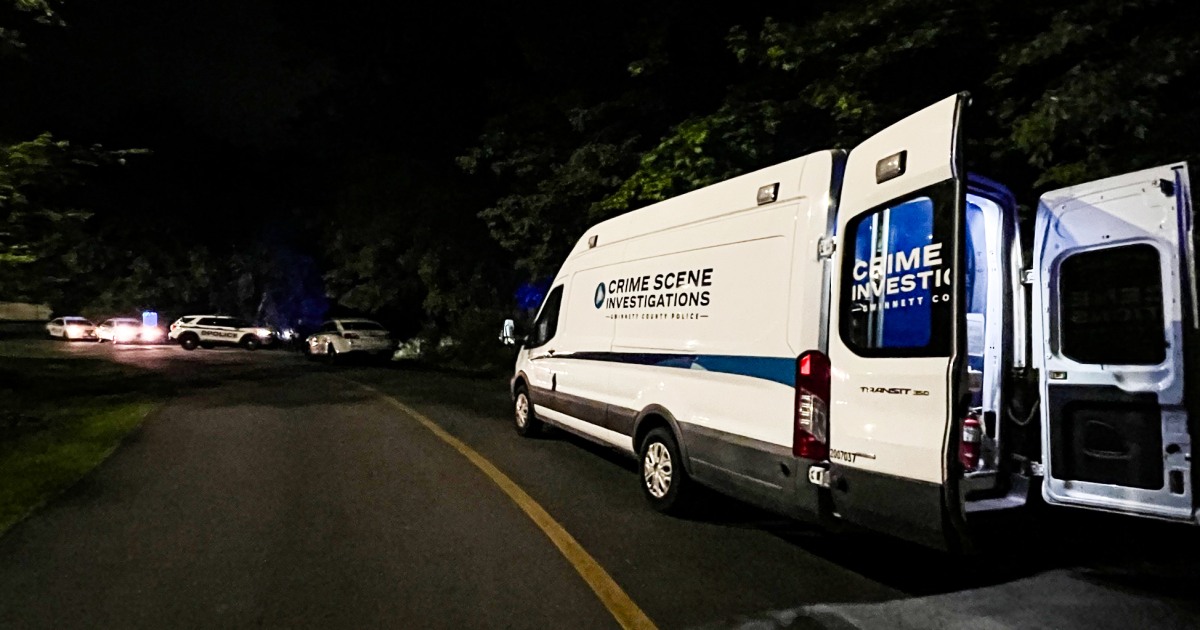Indiana
Indiana wetlands bill garners praise, criticism as it heads to governor’s desk

Supporters of wetland legislation approved 6 Feb. by the Indiana legislature say the regulations are fair to residents, property owners, agriculture and developers while those against it say the state has already weakened wetland protections and this will only serve to damage sensitive ecosystems, increase flooding and decrease water quality.
Now it will be up to Indiana Gov. Eric Holcomb whether he will sign the controversial bill into law.
The legislation was introduced by GOP state Sen. Rick Neimeyer, who said it pertains to state wetlands only, not federal. It takes some of the classifications and changes those that do not meet the definition of isolated wetlands.
He said IDEM and the Indiana Department of Natural Resources will be responsible for reviewing and deciding whether a specific wetland can be declassified. The process will be transparent and the agencies will have to explain their decisions.
Niemeyer said the legislation is necessary because classifying some of these “wet holes” that do not meet the definition of isolated wetlands is unfair to property owners.
Living in south Lake County he has always had a concern about flooding but does not believe the legislation will have that big of an effect on flooding. Still, he said, like others he will be watching what happens if the measure becomes law.
Niemeyer said with his experience on the Lake County Plan Commission and drainage board, he worked with the bill and thinks it is where it needs to be to be fair to all parties.
“I understand the issues on both sides,” Niemeyer said.
State Sen. Dan Dernulc was among a group of eight Republicans to break rank and vote against the measure when it came before the Senate.
“I personally do not like the changes to the classes,” Dernulc said.
He describes himself as “a bit of an environmentalist” and would prefer to keep things the way they are. Dernulc said his is still for development.
“We have to do it with the way the good Lord made it,” Dernulc said.
Organizations like Audubon Great Lakes are urging Holcomb to veto the legislation.
“Two years ago, lawmakers rolled back protections for more than half of Indiana’s wetlands. Yesterday, the Indiana Legislature passed a bill that could leave more vital wetlands out to dry.
Despite its fast track through the legislature, HB 1383 has faced growing opposition from Hoosiers and conservation groups. Yesterday’s Senate vote demonstrated a lack of consensus among lawmakers. Governor Holcomb can protect Indiana’s natural resources by vetoing this problematic bill,” the statement read.
Meanwhile, organizations like the Indiana Builders Association have come out in support.
“We support clearly defined isolated wetlands classifications to provide regulatory relief for property owners and developers while ensuring protection of high-quality isolated wetlands,” according to the IBA website.
“In 2021, the Indiana General Assembly enacted legislation that protects high-quality isolated wetlands while reducing the regulatory costs and permitting requirements on low-quality Class I isolated wetlands in Indiana,” it continued.
“In the years since the law was passed, property owners and environmental consultants who conduct wetland delineations have found that the State Regulated Wetland Class Determination Worksheet utilized by the Indiana Dept. of Environmental Management (IDEM) presented some implementation challenges as it related to the intent of SEA 389 and the classification of isolated wetlands in the state,” the statement read.
Lake County Surveyor Bill Emerson Jr. said losing any wetlands will increase flooding and decrease water quality.
“I view wetlands as a public resource just like our other waterways that need to be protected. I’m hoping our governor feels the same way,” Emerson said. Emerson was among those opposed to the legislation who spoke out against it in 2023.
“Changing those classifications means that more ecologically important wetlands will be categorized in a way they will not be protected,” Emerson said.
He said the state already has reduced protections for wetlands quite a bit.
“Once they are gone, they’re gone. They are expensive to recreate,” Emerson said.
Niemeyer said the legislation also contemplates recreating some wetlands lost to development through a credit system. Developers will pay credits to fill a wetland that can be used to create other wetlands or increase an existing wetland.
“It’s a two-way street. Everybody needs to be working together,” Niemeyer said.
2024 Chicago Tribune. Distributed by Tribune Content Agency, LLC.
Citation:
Indiana wetlands bill garners praise, criticism as it heads to governor’s desk (2024, February 9)
retrieved 9 February 2024
from https://phys.org/news/2024-02-indiana-wetlands-bill-garners-criticism.html
This document is subject to copyright. Apart from any fair dealing for the purpose of private study or research, no
part may be reproduced without the written permission. The content is provided for information purposes only.

Indiana
Caitlin Clark back in action: How to watch Indiana Fever vs. Atlanta Dream tonight
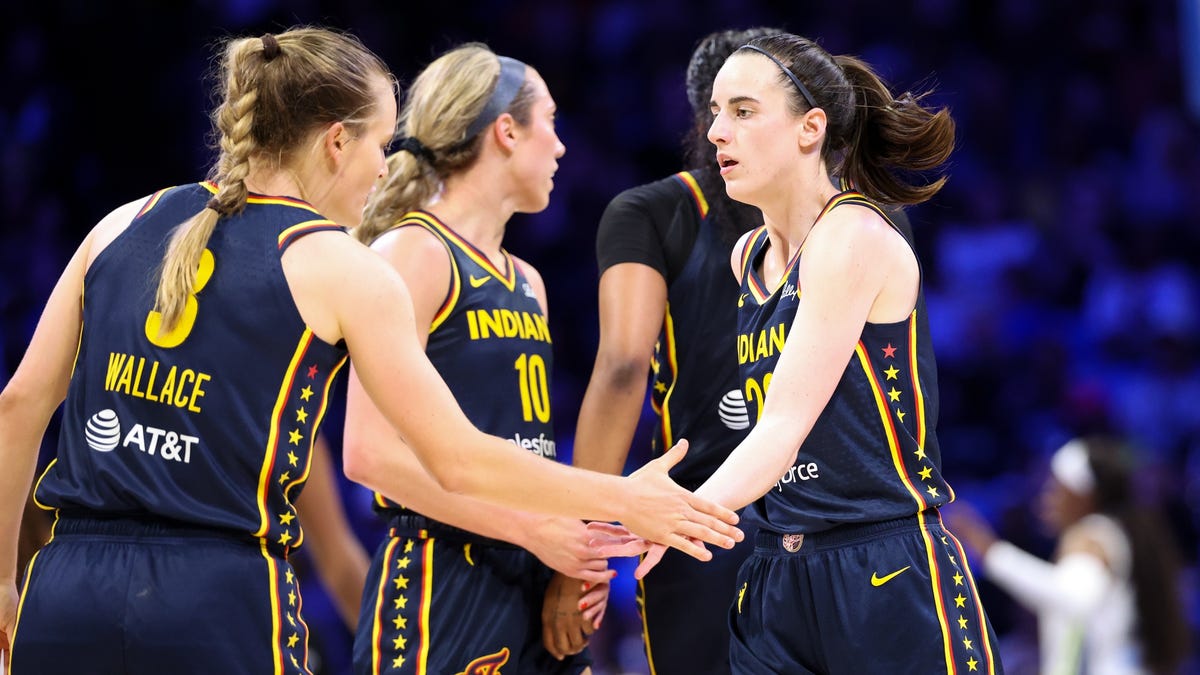
Caitlin Clark compares the WNBA and college
After two days at practice, Fever player Caitlin Clark talks about how different the pros are compared to college.
Sports Seriously
Before she makes her official WNBA regular-season debut, Caitlin Clark will have one more chance to get acclimated.
Clark and the Indiana Fever will be playing their second and final preseason game Thursday against the Atlanta Dream at the Gainbridge Fieldhouse in Indianapolis, marking the first time Clark will play in front of her home fans.
Clark was the No. 1 overall selection in the 2024 WNBA draft in mid-April after a wildly productive college career with the Iowa Hawkeyes, in which she broke the all-time scoring record for men’s and women’s basketball.
Here’s everything you need to know about Thursday’s preseason game between the Indiana Fever and the Atlanta Dream.
What time is Indiana Fever vs. Atlanta Dream?
Caitlin Clark and the Indiana Fever will host the Atlanta Dream Thursday at 7 p.m. ET. The game will take place at the Gainbridge Fieldhouse in Indianapolis.
How to watch Caitlin Clark and the Indiana Fever play the Atlanta Dream tonight
The Indiana Fever game against the Atlanta Dream is available on the WNBA’s League Pass. Fans can get League Pass by downloading the WNBA app. Preseason games are free. The game also is available for streaming on Fubo here (regional restrictions apply).
The game is otherwise not televised.
How did Caitlin Clark do in her first preseason game?
In what was maybe the most anticipated preseason game in the 28-year history of the WNBA, Clark and the Fever played in Dallas against the Wings last Friday. Indiana dropped the game, 79-76, but Clark played well in her first-ever WNBA action.
She started the game and played 28 minutes, and finished 6-of-15 from the floor — including 5-of-13 from 3-point range — to score 21 points. She also added three rebounds, two assists and two steals, but committed five turnovers. She made all but one of her five free throw attempts.
As she did throughout her college career at Iowa, Clark flashed her ability to elude defenders in the perimeter with her dribbling and showed off her deep range.
When do Caitlin Clark and the Indiana Fever open the regular season?
Caitlin Clark and the Fever will open the regular season on the road against the Connecticut Sun on May 14. Their home opener is May 16 against the New York Liberty.
Indiana
Low turnout on Election Day and a preview of November's elections • Indiana Capital Chronicle

As the dust settles from Tuesday’s primary, low turnout continues to plague Indiana’s elections. But some new faces will populate Indiana’s ever-changing political landscape while other politicians didn’t see the comeback they’d hope to achieve.
“Probably the biggest takeaway that I would have is that, in many ways, this was the most competitive primary Indiana has seen in a while. And yet, voter turnout was still exceptionally low,” said Greg Shufeldt, a political science professor at the University of Indianapolis.
He noted that in Marion County, the largest population center in the state, turnout was as low as 20% even with a historically competitive — and expensive — governor’s race.
“Having a multi-candidate governor’s race — and having as much money that was spent in the race — it was disappointing how few voters turned out to vote,” Shufeldt said.
A final turnout report from the Indiana Secretary of State’s office won’t be ready for weeks but preliminary reports suggest that turnout hovered around 20 to 25% for many parts of the state.
For comparison, 2022 primary turnout for the state was 14%, lower than the 24% turnout for 2020’s primary — which occurred during the COVID-19 pandemic and permitted expanded use of absentee ballots.
Indiana ranks near the bottom of the country when it comes to voter turnout for elections, according to the latest Indiana Civic Health Index. Out of all 50 states and Washington, D.C., the Hoosier state ranked 50th out of 51 for voter turnout in 2022, and 40th when it comes to registration.
Still, state officials announced last week that the state has seen an increase in voter registration leading up to Tuesday’s elections.
The Secretary of State’s office reported an increase in voter registrations in the last month before April’s deadline when compared to data from the past five years. Indiana Secretary of State Diego Morales pointed to a statewide voter outreach campaign as a driving force behind registration increase.
The latest voter registration and absentee ballot numbers have yet to be released by the Secretary of State, but the office indicated that 4,674,413 Hoosiers were registered to vote as of Jan. 2. That’s equal to about 69% of the state’s population.
Indiana’s late presidential primary
Hoosiers voting for president had no primary choices — Donald Trump and Joe Biden have been their parties’ nominees for months — but that didn’t stop some from checking the box for comparatively moderate Republican Nikki Haley. She dropped out of the race in March, but garnered votes from one in five, about 21%, of Republican voters.
That may have been a protest vote, per Shufeldt. Indiana has open primary elections, so Democrats and independents may have pulled GOP ballots and voted against the former president.
Although moderate group ReCenter Indiana and others have encouraged such primary-swapping, Shufeldt said getting voters to do so “systematically” would require a “more concerted push.”
Votes for Haley tallied at close to 125,000 as of Wednesday, according to the Indiana Secretary of State. Trump led in all Indiana counties, however.
The former United Nations Ambassador earned the highest support in Boone, Hamilton, Marion, Tippecanoe and St. Joseph counties, where 30% or more of voters opted for Haley. The most votes — 35.1% – came from Republicans in Marion County, equal to nearly 16,000 Hoosiers.
In the 2020 primary, almost 92% of Indiana’s Republican voters supported Trump. In a much more crowded GOP field in 2016, Trump topped eight other candidates, earning 33.6% of Republicans’ votes.
Braun walks away with it
Indiana’s most expensive gubernatorial primary ended in a whimper just an hour after most of the state’s polls closed, with U.S. Sen. Mike Braun finishing 18 percentage points ahead of his closest competitor.
Braun nabs early win in the Republican primary for governor
He came into the race with a hefty war chest, as did Lt. Gov. Suzanne Crouch, but he didn’t spend the most; that was businessman Brad Chambers, who finished third. Chambers and Eric Doden, both wealthy entrepreneurs, poured money into their respective campaigns — including several multimillion dollar loans on Chambers’ part.
“This is kind of the power of incumbency and status quo,” Shufeldt said.
But, he noted, Braun did not win over a majority of primary voters; the senator won a plurality of about 40%.
Meanwhile, former Attorney General Curtis Hill’s political comeback ended with him at the bottom of the pile of Republican gubernatorial candidates — behind a conservative activist running on a shoestring budget but backed by dedicated volunteers.
“Other candidates with similarly sullied reputations that have been rejected by voters can find second or third chances, so I wouldn’t necessarily rule (a rebound) out,” Shufeldt said. But, he added, “Who Curtis Hill would have needed to win an election was so very clearly already in Sen. Braun’s camp.”
The Indiana Supreme Court in 2020 suspended then-Attorney General Hill’s law license for 30 days after finding that he committed criminal battery, and he lost in a 2020 convention to sitting Attorney General Todd Rokita.
Changes coming to the Statehouse
Two incumbent state lawmakers lost their seats in Tuesday’s elections: Rep. Sharon Negele and Sen. David Vinzant of Hobart. Several others narrowly survived close elections.
Vinzant narrowly won the seat in a January caucus vote over Mark Spencer, but Spencer won the voters on Tuesday. Negele, on the other hand, had held her seat for five terms, losing to military veteran and teacher Matthew Commons by over 2,000 votes.

The Attica Republican has represented House District 13 since 2012. The seat is geographically large, covering all of Benton and Warren counties, and portions of Fountain, Jasper, Montgomery, Newton, Tippecanoe and White counties.
She has been known in the Statehouse as an effective legislator with clout in the House Republican caucus. Earlier this year she spearheaded a bill to tackle the criminalization of revenge pornography using artificial intelligence.
But the race against Commons was about local control, said Dave Bangert, a local journalist running the Based in Lafayette Substack.
The biggest part of that was the move by the state to pipe millions of gallons of water from Tippecanoe County to central Indiana for the LEAP Innovation Park. Negele filed legislation to slow down or curb that process but it went nowhere.
Elsewhere in the district, a controversial carbon sequestration project that Negele supported also loomed large. And even a local puppy mill ban got caught up in a preemptive new law taking power from communities.
“Commons said there is nobody down there who can save us. We need a change and a different voice,” Bangert said. “The rural communities came together with a loud voice.”
He also added that Negele’s defeat will be felt by Purdue University and Tippecanoe, and noted the district will lose a lot of influence in the caucus.
Commons ultimately took 60% of the vote in the race.
A preview of races to come
A wave of Republican General Assembly retirements opened up seats that attracted several primary contenders, including one four-way race that was decided by less than 100 votes. The Indiana Democratic Party hopes to flip some of these in November’s elections, especially those in vulnerable suburban seats around Indianapolis, meaning that the deluge of spending and advertising is far from over.
Congressional primary victors emerge from crowded Indiana races
A “Break the Supermajority” tour by the party launched in Carmel, featuring Rep. Victoria Garcia Wilburn alongside House candidates Matt McNally and Josh Lowry as well as Senate candidate Joel Levi.
Democrat Garcia Wilburn’s seat was previously held by a Republican who retired, longtime educator and lawmaker Tony Cook. McNally, a retired military veteran, and Lowry, an attorney, hope to also flip Republican seats vacated after the retirements of Jerry Torr and Donna Schaibley, respectively.
Lowry will face off against former Colts player Hunter Smith while McNally is running against business leader Danny Lopez in November.
Pharmacy technician Levi, on the other hand, is targeting incumbent Noblesville Sen. Scott Baldwin.
All three seats cover portions of Hamilton County, long a Republican enclave but one of the fastest-growing parts of the state — which Democrats hope can be used to their advantage in November’s elections.
However, breaking the GOP’s decade-old supermajority in both chambers is easier said than done. Republicans currently hold 40 of 50 seats in the Senate and 70 of 100 seats in the House, meaning any action requiring a two-thirds majority vote can advance without Democratic input.
GET THE MORNING HEADLINES DELIVERED TO YOUR INBOX
Indiana
Longtime Israel critic loses Indiana Republican House primary after campaign by Jewish groups

A former Republican congressman in Indiana who is a longtime critic of Israel failed in his bid to return to the House of Representatives after the Republican Jewish Coalition and AIPAC mounted an effort to support his opponent.
Election returns in Indiana’s 8th district on Tuesday night showed state Senator Mark Messmer, the RJC’s favored candidate, soundly defeating John Hostettler, who represented the district in Congress from 1995-2007.
“Tonight, we succeeded in keeping a vocal anti-Israel candidate out of the Republican conference,” the RJC said Tuesday evening. “This is a major victory for the RJC, the Jewish community, for all pro-Israel Americans, and for common sense.”
The RJC had spent $1 million on ads in the district mostly promoting Messmer, said Sam Markstein, a spokesman for the group.
“The results last night make it very clear that our efforts were very effective in ensuring that a vocal anti Israel voice would not be joining the republican conference,” he said. The District leans Republican and Messmer is seen as a shoo-in in November.
Hostettler during his time in Congress was an isolationist who wrote a book after he left office blaming Jews for for the Iraq War. “Hostettler’s claim of ‘dual loyalty’ by prominent Jews repeats age-old slanders of Jewish disloyalty to their countries and outlandish notions of secret Jewish cabals pulling international strings,” Abraham Foxman, then the national director of the Anti-Defamation League, wrote at the time.
The Republican and Democratic Jewish organizations have traditionally focused on attacking candidates from the other side, but as politics related to Israel have tectonically shifted in recent years, pro-Israel affiliates of both parties are aiming fire inward. The RJC recently announced plans to target Virginia Rep. Bob Good, the chairman of the Freedom Caucus, because he led a group of 21 Republicans who opposed emergency defense funding for Israel.
The Democratic Majority for Israel has in recent years taken on Israel’s sharpest critics in the party, and was recently joined by the Jewish Democratic Council of America, which recently endorsed two opponents of members of the progressive “Squad” who have advocated cutting off aid to Israel, Reps. Jamaal Bowman of New York and Cori Bush of St. Louis.
Ousting white supremacy supporters
The RJC previously worked to oust Iowa Republican Rep. Steve King, who had a history of condoning white supremacists. He lost his primary in 2020.
United Democracy Project, a political action committee affiliated with the American Israel Public Affairs Committee, also opposed Hostettler, spending about $1.5 million on negative ads. “What kind of Republican votes against supporting Israel?” one ad said.
“Regardless of party affiliation, we will support pro-Israel candidates and oppose detractors,” AIPAC said in a statement. “Our only criterion is whether the candidate stands with America’s ally, Israel, in its battle against the Iranian regime and its terrorist proxies, including Hamas and Hezbollah.”
-

 World1 week ago
World1 week agoStrack-Zimmermann blasts von der Leyen's defence policy
-

 Politics1 week ago
Politics1 week agoThe White House has a new curator. Donna Hayashi Smith is the first Asian American to hold the post
-

 Politics1 week ago
Politics1 week agoStefanik hits special counsel Jack Smith with ethics complaint, accuses him of election meddling
-

 Politics1 week ago
Politics1 week agoDemocratic mayor joins Kentucky GOP lawmakers to celebrate state funding for Louisville
-

 World1 week ago
World1 week agoTurkish police arrest hundreds at Istanbul May Day protests
-

 News1 week ago
News1 week agoVideo: Police Arrest Columbia Protesters Occupying Hamilton Hall
-

 Politics1 week ago
Politics1 week agoNewsom, state officials silent on anti-Israel protests at UCLA
-

 News1 week ago
News1 week agoPolice enter UCLA anti-war encampment; Arizona repeals Civil War-era abortion ban
